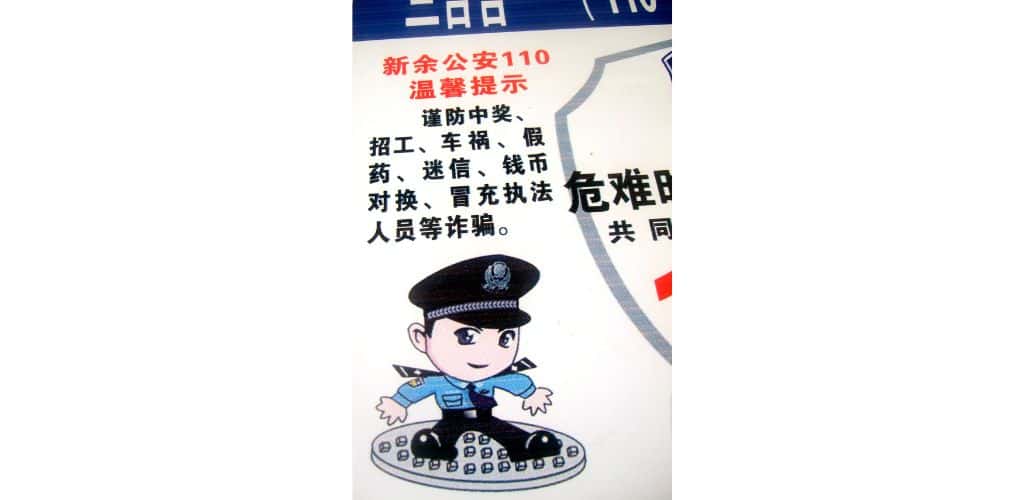The Guangzhou Internet Court issued the first ruling involving the liability of generative artificial intelligence (GAI) companies for copyright infringement.
China has three internet courts in Beijing, Hangzhou, and Guangzhou. These special courts have jurisdiction over online copyright infringement cases. Compared to regular courts, which typically take from six months to two years to resolve cases, the internet courts usually reach decisions within a few months.
This is believed to be the first such ruling in the world, as well as the first in China.
The case involved GAI images of Ultraman based on prompts inputted by the plaintiff. Ultraman is a fictional superhero who debuted in the pilot episode of a 1966 Japanese TV series.
According to the Ultraman Connection website,
Ultraman was the first of a number of Ultra Heroes, beings of light hailing from Nebula M78, who would protect the Earth for more than half a century now, each one unique in skill and arsenal, but united in purpose, and each deserving of the Ultraman title.
The plaintiff in the case was Shanghai Character License Administrative Co., Ltd. (SCLA), which holds the exclusive rights to the intellectual property (IP) attached to the Ultraman series.
The defendant was an unnamed AI company that operates a website that creates GAI images. It does this using an AI model provided by an unnamed third-party. This third-party tool was connected to the defendant’s site via an application programming interface (API).
SCLA learned that when it entered the prompt “generate an Ultraman Dyna”, the defendant’s site produced an image that looked like Ultraman. SCLA asserted that this was copyright infringement and asked the Chinese Internet Court to order the defendant to cease infringing and remove Ultraman images from the defendant’s training data.
The court concluded that the Ultraman figures were protected under the Copyright Law of the People’s Republic of China and that the GAI images generated by the defendant’s website resembled these figures. The court also concluded that this infringed SCLA’s rights to reproduce and adapt its IP.
The court decided not to determine whether the defendant violated the information network communication right, a Chinese law that prohibits making a copyrighted work available to the public by wired or wireless means without the permission of the copyright owner.
Also, since the defendant’s website didn’t actually train the GAI tool it used, the court couldn’t order it to remove the Ultraman training data, and the third-party website that used the Ultraman images in its training data wasn’t a party to the lawsuit.
SCLA requested damages and costs of RMB 300,000 ($42,267), but the court awarded only RMB 10,000 ($1,408).
China’s Interim Measures for the Management of Generative Artificial Intelligence Services came into force in August 2023. According to China Briefing,
The Generative AI Measures place a diverse array of responsibilities on generative AI services providers. These encompass aspects such as AI governance, training data requirements, tagging and labeling standards, data protection protocols, and safeguarding user rights.
Several AI-related copyright infringement lawsuits are pending in the US. Perhaps the most high-profile of these is the suit by the New York Times against OpenAI and Microsoft.
As the Times reported in December of 2023,
The Times is the first major American media organization to sue the companies, the creators of ChatGPT and other popular A.I. platforms, over copyright issues associated with its written works. The lawsuit, filed in Federal District Court in Manhattan, contends that millions of articles published by The Times were used to train automated chatbots that now compete with the news outlet as a source of reliable information.
Previously, as the Times noted,
The actress Sarah Silverman joined a pair of lawsuits in July that accused Meta and OpenAI of having “ingested” her memoir as a training text for A.I. programs.
Much of the emerging GAI industry was built on the expectation that using copyrighted material as training data is within the scope of fair use under copyright law. As these cases make their way through court systems in the US and abroad, the validity of this assumption will be tested.
Just like the haiku above, we like to keep our posts short and sweet. Hopefully, you found this bite-sized information helpful. If you would like more information, please do not hesitate to contact us here.


